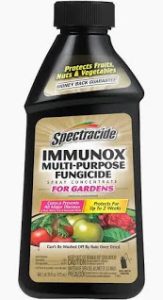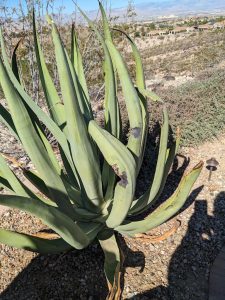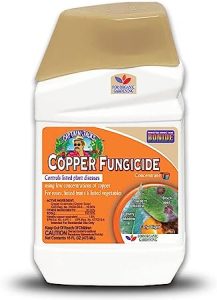Q.
Is there something we need to do for these spots on the leaves of my octopus
agave?
A.
I think this is a fungal disease that favors a higher humidity than we normally
have in the desert. The disease was caused and spread by the rain and wind that
we had earlier. You don’t want any fungal disease spreading to the mainstem. To
prevent that, you can apply a common landscape fungicide to the cactus after
you have a repeat of the rain and wind event. Watch your weather app. If your
weather app says the rain is returning, apply the landscape fungicide the day
after it occurs.
 |
| Broad-based landscape fungicides are meant to prevent the spread of many different types of disease. |
Fruit and vegetable growers use copper-based fungicides as a protectant for many different kinds of foliar diseases. To be used effectively, and like most fungicides, they must be applied before the presence of disease. Organic fungicides are the only organic option worthwhile against diseases such as late blight and downy mildew. Think tomatoes, peppers, eggplant, and potatoes. These diseases have the ability to kill plants. Copper is also an essential nutrient for plants but use it sparingly.
In the meantime, prune out any black “spots”
or lesions that you see in the stems. I think these are fungal lesions with
dormant fungi waiting for the next rain event to make it active again. Sanitize
between any cuts to eliminate re-infecting the plant. Use 70% ethyl alcohol to
sanitize a knife or pruning shears. Using both the fungicide after wet weather
and cutting out the black spots helps eliminate future problems.
Make sure you’re not overwatering it and
improve soil drainage around its roots. Octopus agave originates in the Sonoran
Desert of Mexico therefore it doesn’t like getting watered too often. For instance, it will not survive in a lawn. Take it
off the irrigation controller and hand water with a hose. Watering these plants
once with a hose only gets the water 3 or 4 inches deep. Water these plants
five times a year; only three or four times during the summer and once during
the winter. The soil must be dry between waterings!

